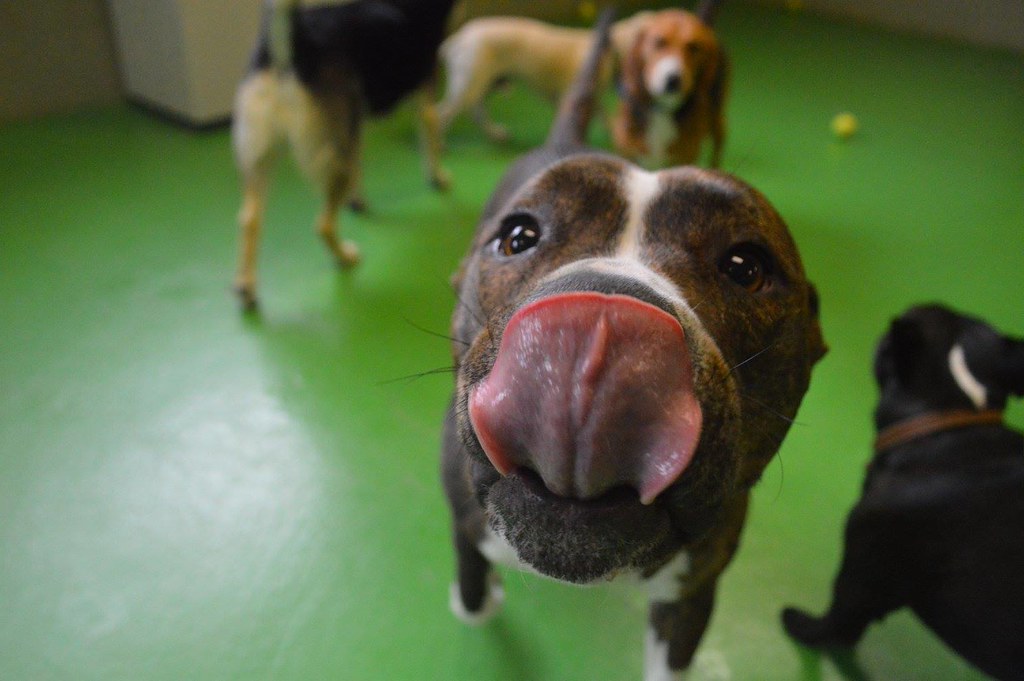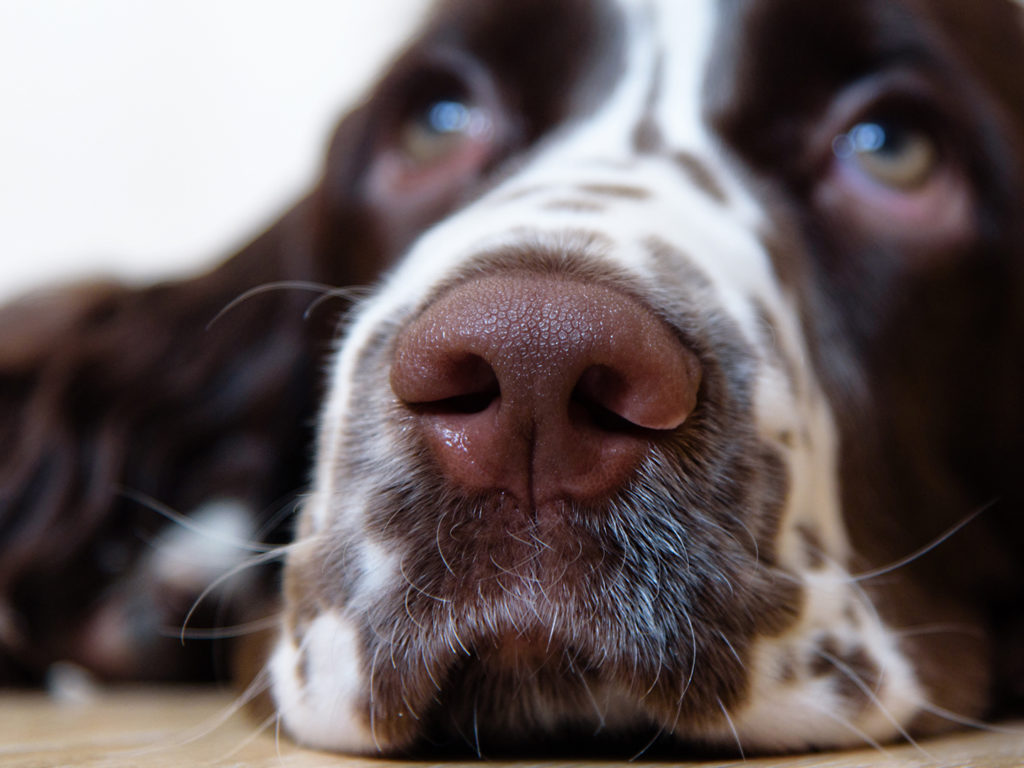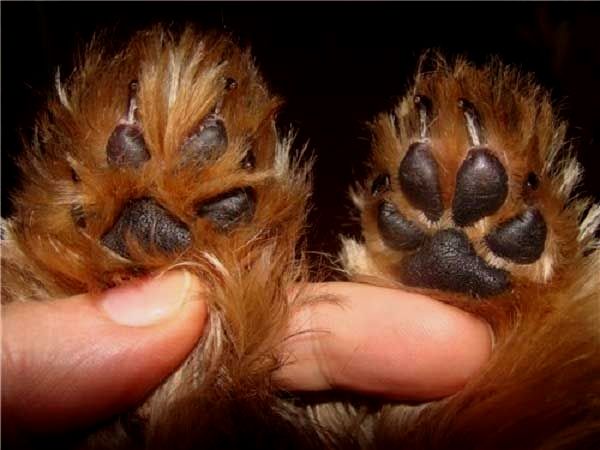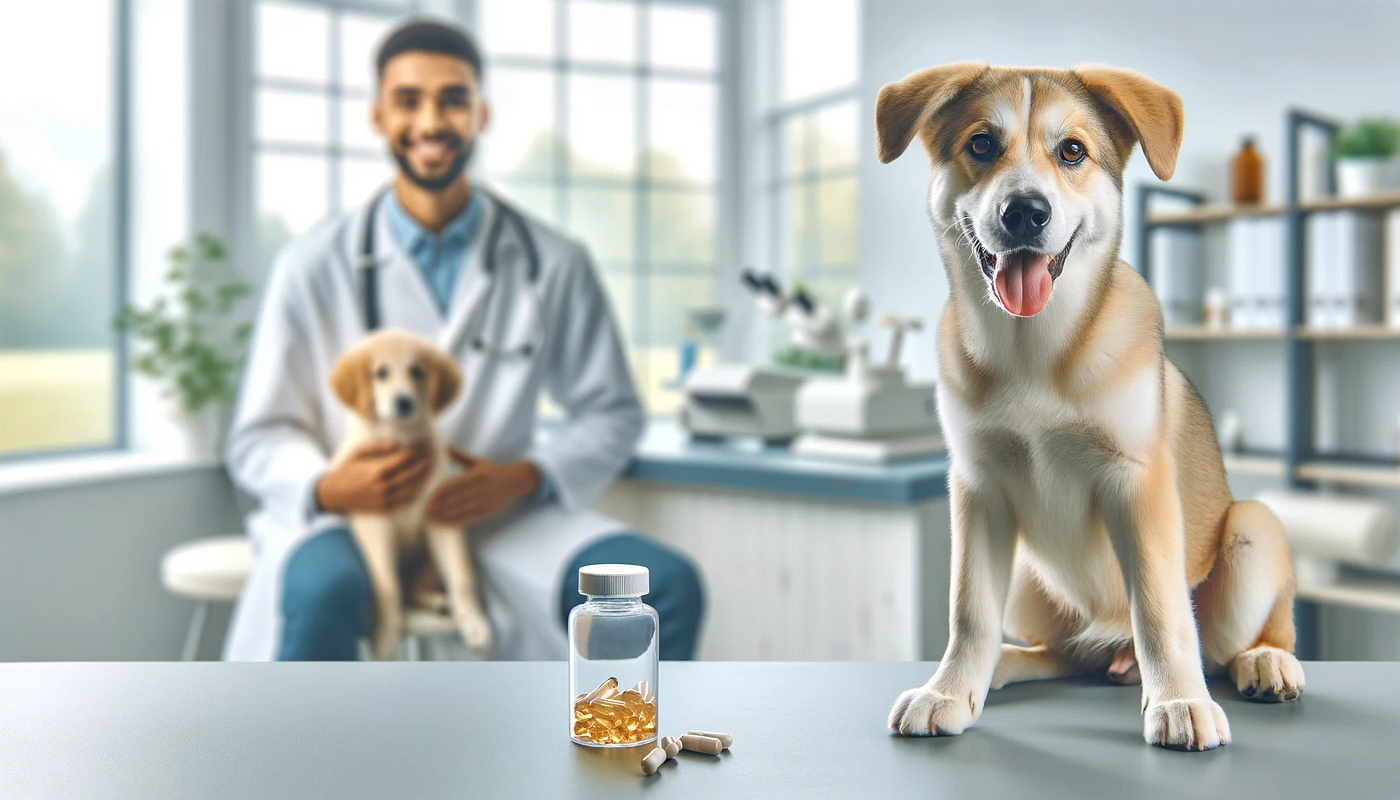Why are dogs noses wet Dogs’ incredible sense of smell is truly remarkable, thanks in part to their impressive number of olfactory receptors. With over 300 million olfactory receptors in their noses, compared to the mere 6 million in human noses, dogs possess an extraordinary ability to detect scents with unparalleled precision and sensitivity.
But what about those perpetually wet noses? Contrary to popular belief, the moisture on a dog’s nose serves a purpose beyond just keeping it moist. The wetness helps to enhance a dog’s sense of smell by capturing scent particles more effectively, allowing them to better analyze and interpret the myriad scents that surround them.
Additionally, the moisture on a dog’s nose helps to regulate their body temperature and prevent dehydration. When a dog is overheated, they may pant to release heat, but they also rely on the evaporation of moisture from their nose to cool down.
So, the next time you marvel at your furry friend’s wet nose, remember that it’s not just a quirk of nature—it’s a vital tool that helps them navigate the world around them with remarkable skill and precision. And if you notice your dog’s nose is dry or excessively wet, it could be a sign of underlying health issues, so it’s always a good idea to consult with your veterinarian to ensure your pet is feeling their best.
Is It Normal for a Dog’s Nose to Be Wet?
A dog’s wet nose is not only endearing but also serves important physiological functions. It’s completely normal for a dog’s nose to be wet, and in fact, it’s a sign of good health. The moisture on their nose helps them absorb scents more effectively, keeping their sense of smell sharp and alert.
Moreover, a wet nose helps regulate a dog’s body temperature, acting as a natural cooling mechanism, especially in hot weather. Additionally, it indicates that your dog is well-hydrated, as dehydration can lead to a dry nose.
However, it’s essential to pay attention to any changes in your dog’s nose. If it becomes excessively wet or dry, it could be a sign of an underlying health issue. Certain illnesses or conditions may affect the moisture levels of a dog’s nose, so it’s crucial to monitor any unusual changes and consult with a veterinarian if necessary.
In summary, while a little moisture on your dog’s nose is perfectly normal and healthy, significant deviations from the norm may warrant a trip to the vet. Keeping an eye on your furry friend’s nose can provide valuable insights into their overall health and well-being why are dogs noses wet.

Why Are Dogs Noses Wet?
If you’ve ever had the pleasure of petting a dog, you’ve likely noticed that their noses are often wet and cold to the touch. This unique characteristic is not only adorable but also serves important purposes in a dog’s life.
Firstly, the moisture on a dog’s nose helps enhance their sense of smell. Dogs have an incredibly acute sense of smell, and the moisture on their noses helps them capture scent particles more effectively, allowing them to analyze and interpret scents with remarkable precision.
Additionally, a wet nose helps regulate a dog’s body temperature. When a dog is overheated, moisture evaporates from their nose, helping to cool them down. This natural cooling mechanism is especially beneficial during hot weather or after physical activity.
Furthermore, the moisture on a dog’s nose can indicate their overall hydration levels. A wet nose is often a sign of a well-hydrated dog, while a dry nose may indicate dehydration.
So, the next time your furry friend greets you with a wet nose nuzzle or tries to sneak a sniff of your delicious meal, remember that their moist noses serve important functions beyond just being cute—they’re essential tools that help dogs navigate the world around them with ease and efficiency why are dogs noses wet.
Their Nose Secretes Mucus
A dog’s wet nose is primarily due to the thin layer of mucus they naturally secrete onto their noses. This mucus serves several important functions in a dog’s olfactory system and overall well-being.
Firstly, the mucus helps trap scent particles from the environment, allowing them to be detected by the dog’s highly sensitive olfactory receptors. By keeping these scent particles close to the receptors, dogs can more effectively analyze and interpret smells, contributing to their remarkable sense of smell.
Additionally, the moisture provided by the mucus helps prevent the nostrils from drying out and becoming crusty. This ensures that the dog’s nasal passages remain clear and functional, facilitating efficient airflow and scent detection.
In dogs with black noses, the mucus may also play a role in absorbing sunlight and helping to keep the nose cooler, especially in warmer climates.
While dogs may lick their noses occasionally, they typically do so to remove debris or spread the mucus around, rather than to add moisture. Therefore, the majority of the time, a dog’s wet nose is a natural result of their biological mechanisms, ensuring optimal olfactory function and overall nasal health why are dogs noses wet.
They Lick Their Noses
When a dog licks its nose, it serves more than just a grooming function—it’s a crucial part of their natural behavior that helps maintain their overall health and enhances their incredible sense of smell.
Firstly, the moisture spread by licking helps to keep the nose moist, which is essential for effective scent detection. Dogs rely heavily on their sense of smell to navigate the world around them, and a moist nose facilitates the capture and analysis of scent particles, allowing them to detect and interpret smells with remarkable precision.
Additionally, the moisture on a dog’s nose helps regulate their body temperature. While dogs have sweat glands primarily in their paw pads and limited sweat glands elsewhere, licking their noses is one way they can cool down. As the moisture evaporates from their nose, it helps dissipate heat and maintain a comfortable body temperature, especially in warmer environments or after physical exertion.
Moreover, the wetness on a dog’s nose plays a crucial role in scent trapping. When a dog sniffs something, the moisture on their nose picks up scent particles from the air and carries them into the nasal cavity, where they can be analyzed by the olfactory bulbs. This process is fundamental to a dog’s exceptional sense of smell and contributes to their ability to detect and track scents over vast distances.
So, the next time you notice your pup licking their nose, remember that it’s not just a grooming behavior—it’s a vital part of their biology that helps them stay healthy, cool, and capable of sniffing out even the faintest of scents why are dogs noses wet.
A Wet Nose Cools Your Pup
A dog’s wet nose serves as an efficient cooling system, playing a crucial role in helping them regulate their body temperature and stay comfortable, especially in warmer weather or during physical activity.
The large surface area of a dog’s nose allows it to absorb a significant amount of heat from the dog’s body. This helps to dissipate excess heat and prevent overheating, which is essential for maintaining optimal health and well-being.
Moreover, the blood vessels in a dog’s nose are situated close to the surface, facilitating heat exchange as the blood circulates through the nasal passages. As the blood comes into contact with the cool surface of the nose, it helps to lower the overall body temperature, contributing to the dog’s overall comfort and well-being.
Additionally, the moisture on a dog’s nose evaporates quickly, providing an additional cooling effect. As the moisture evaporates, it helps to remove heat from the surface of the nose, further aiding in the cooling process.
So, the next time you observe your furry friend with a wet nose, remember that it’s not just a result of slobbering—it’s a vital component of their natural cooling mechanism, helping them stay cool, comfortable, and healthy, even in the warmest of conditions why are dogs noses wet.

They’re Born That Way
That’s an interesting perspective! While it’s true that newborn mammals are born with a wet nose due to the secretion produced by glands in their noses, it’s important to note that not all mammals retain this trait into adulthood.
In the case of dogs (and cats), they do indeed retain the ability to have wet noses throughout their lives. The secretion produced by the glands in their noses helps to keep their nostrils moist, which is important for several reasons.
Firstly, a moist nose can enhance a dog’s sense of smell, as it helps to trap scent particles and improve their ability to detect odors in their environment. Additionally, the moisture on a dog’s nose can help regulate their body temperature, as it aids in the evaporative cooling process.
Furthermore, the secretion produced by glands in the nose may have some antimicrobial properties, helping to protect dogs from certain infections or illnesses.
So, if you notice that your puppy or adult dog has a wet nose, there’s usually no cause for concern—it’s simply a natural part of their biology and can even indicate good health and well-being.
What Does an Overly Wet Dog Nose Mean?
an excessively wet dog nose can have various explanations, and understanding the potential causes can help ensure your furry friend’s well-being.
One possibility is that the dog is experiencing increased drooling, which can occur due to factors like excitement, stress, or fatigue. If the wetness is primarily present during moments of heavy panting, this may indeed be the cause.
However, if the dog’s nose is consistently wet, accompanied by symptoms like sneezing and excessive scratching, it could indicate an infection or allergies. In such cases, it’s advisable to consult a veterinarian for a thorough examination and appropriate treatment.
Infections or allergies can cause discomfort for dogs, so prompt veterinary attention is essential to address the underlying issue and alleviate any discomfort your pet may be experiencing. Fortunately, many dog illnesses and infections are treatable with medications such as antibiotics or topical ointments.
On a lighter note, if your dog has been swimming or playing in water, their wet nose is likely just a result of these activities. In such cases, there’s typically no cause for concern, but it’s important to ensure your dog is dried off completely afterward to prevent any potential discomfort or skin issues.
Overall, while an excessively wet dog nose may raise concerns, understanding the possible reasons behind it can help you provide the necessary care and attention to ensure your furry friend remains happy and healthy why are dogs noses wet.

What Does a Dry Dog Nose Mean?
A dry dog nose can prompt concern among pet owners, but understanding the potential causes can provide valuable insight into your furry friend’s health. Here are three common reasons behind a dry dog nose:
- Environmental Factors: Just like humans, dogs can experience dryness and cracking of the nose due to environmental factors such as exposure to dry air, harsh weather conditions, or excessive sun exposure. If your dog spends a lot of time outdoors or in environments with low humidity, their nose may become dry as a result.
- Dehydration: Inadequate hydration can lead to dryness of the nose and other mucous membranes in dogs. Ensure that your pet has access to clean, fresh water at all times and encourage them to stay hydrated, especially during hot weather or periods of increased physical activity.
- Allergies or Irritants: Allergies or exposure to irritants such as certain chemicals, perfumes, or household cleaners can cause inflammation and dryness of the nose in dogs. Pay attention to any changes in your dog’s environment or grooming products that may coincide with the onset of dryness.
While these are common causes of a dry dog nose, it’s essential to consult with your veterinarian for a thorough evaluation if you notice persistent dryness, cracking, or other abnormalities. Your vet can provide personalized advice and recommend appropriate treatment options based on your dog’s specific needs and circumstances.
Dehydration From Exercise
Dehydration is a prevalent concern for dogs, particularly in hot weather or after engaging in strenuous activities like dog training. A dry nose can indeed be a sign of dehydration among other symptoms.
If you notice that your dog’s nose feels dry and tacky, it’s crucial to take immediate action to address potential dehydration. Start by offering your dog small amounts of water frequently and ensuring they have access to fresh water at all times. Additionally, check your dog’s gums to assess their color; pale or blue gums can indicate severe dehydration and require prompt veterinary attention.
Providing your dog with a cool, shady spot to rest and recuperate can also aid in the rehydration process. However, if your dog is experiencing vomiting or displaying other signs of severe dehydration, such as lethargy or weakness, it’s essential to seek veterinary care promptly.
Your veterinarian can assess the severity of dehydration and provide appropriate treatment, which may include intravenous fluids to replenish lost fluids and electrolytes. Early detection and intervention are critical in managing dehydration in dogs and ensuring their overall health and well-being.
Exposure to Weather or Dry Air
Just like humans, dogs can experience dryness and chapping of the nose, particularly in low humidity environments. Since a dog’s nose lacks oil glands, it’s more prone to drying out compared to human skin.
To protect your dog’s nose from harsh conditions, whether it’s hot and sunny or cold and windy, consider taking proactive measures. Providing your dog with adequate shelter and ensuring they have access to shade during sunny days can help prevent excessive drying. Additionally, avoid prolonged exposure to extreme weather conditions whenever possible.
If you notice that your dog’s nose is dry and cracked, consider applying a small amount of petroleum jelly or beeswax to help moisturize and soothe the skin. These products can create a protective barrier that helps retain moisture and prevents further drying.
However, it’s essential to use these products sparingly and choose pet-safe options to avoid any potential adverse reactions. If you have concerns about your dog’s nose or if the dryness persists despite your efforts, consult with your veterinarian for personalized advice and recommendations. They can assess the situation and provide appropriate guidance to ensure your dog’s nose stays healthy and comfortable.
Age-Related Dryness
Age-related dryness is a common occurrence in dogs and is typically nothing to worry about. As dogs age, they may experience a decrease in the production of oil, leading to dryness of the nose.
In most cases, age-related dryness is a normal part of the aging process and does not indicate an underlying health issue. However, if your dog’s nose becomes excessively dry, cracked, or irritated, it’s essential to monitor the situation closely.
To help alleviate dryness and provide comfort for your furry friend, consider using a humidifier in their living space to increase moisture levels in the air. Additionally, applying a small amount of petroleum jelly or a pet-safe moisturizer to the nose can help protect the skin and prevent further dryness.
While age-related dryness typically does not require treatment and does not cause discomfort for the dog, it’s essential to remain vigilant for any signs of infection or allergy. If you notice any concerning symptoms or changes in your dog’s nose, consult with your veterinarian for proper evaluation and guidance. They can assess the situation and recommend appropriate measures to ensure your dog’s health and well-being.




